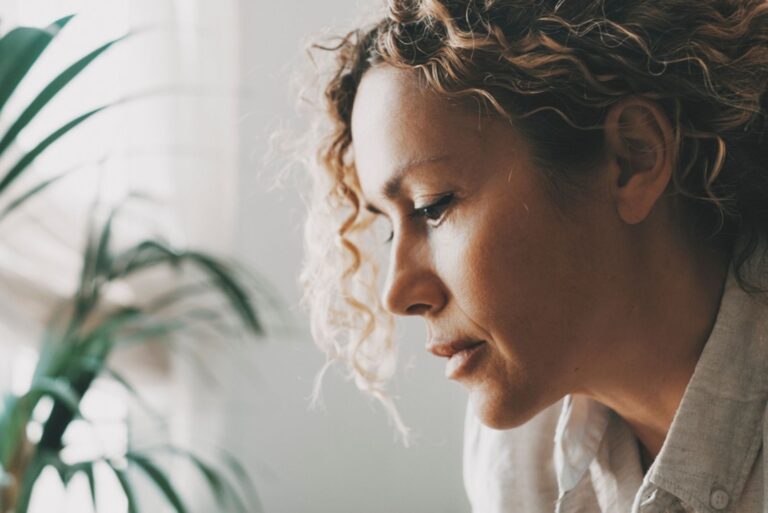Como reconhecer um estilo de vinculação ansioso antes que ele arruíne seus relacionamentos
Encontrou finalmente a sua pessoa e tudo parece estar bem. A única coisa que o impede (e ao seu parceiro) de viver em paz é que tiny little voice in your head always saying that something ain’t right.
Maybe they don’t love me at all? Are they planning on leaving me? Why aren’t they answering my texts, are they cheating? If this sounds familiar, pode estar a lidar com um estilo de vinculação ansioso.
Now, don’t panic right away. The first step is to recognize you have a problem so you can work on it because pode prejudicar seriamente a vossa relação. And if I’ve managed to do it, so can you! Here’s what made me realize I have this toxic attachment.
1. Sempre sensível e em alerta máximo
Isto costumava irritar muito o meu parceiro e provavelmente também o seu. Mas eu compreendo, porque deve ser cansativo quando alguém nos acusa de alguma coisa a toda a hora.
Be honest and ask yourself if you’re always searching for some problem or feeling that something’s not right. Talvez o seu parceiro esteja calado e, de repente, pense que ele perdeu o interesse e o acha aborrecido.
Agir desta forma também é cansativo para si e só conduz a conflitos desnecessários. Instead of immediately going for the worst possible outcome try to calm yourself and just ask them if everything’s okay.
2. Medo de ser abandonado

This is the big one. I’m guilty of it as well. I would often be worried about my partner leaving me and needed him to reassure me he wasn’t going anywhere.
O medo do abandono está muitas vezes na origem de um estilo de vinculação ansioso and it won’t leave you alone until you seriously work on it. Nobody likes being constantly questioned and asked if they really love us.
And what’s ironic is that acting this way can actually lead you closer to the outcome you’re afraid of. Concentrei-me em construir a minha autoestima e em discutir abertamente os meus medos com o meu parceiro e isso ajudou-me imenso!
3. Ciúme irracional
Do you feel like everyone’s after your partner and just looking how to sabotage your relationship? Does every little thing make you jealous? Yeah, these are all hallmarks of this attachment type.
To resolve an issue you first need to realize what’s causing it. No caso do ciúme, a insegurança é a origem de tudo, and it often ruins relationships. It causes you to view everyone as a threat and makes your partner think you don’t trust them at all.
O que me ajudou foi lembrar-me de que o meu parceiro está comigo por uma razão e se ele gostasse mais de outra pessoa, estaria com ela. Também trabalhei muito a minha confiança e o facto de me sentir melhor comigo própria. Isso mudou tudo para mim!
4. Questões de confiança

You see how it’s all connected? Every problem drags another one along with it. So, once you work on everything I mentioned by far, you will most probably get rid of trust issues as well.
Eu sei as dificuldades com a confiança resultam frequentemente de experiências negativas passadas so having a partner that’s willing to work through it with you is crucial. It takes time and patience for you to realize every relationship is a new clear beginning.
It’s important you comunicar com o seu parceiro se tiver estes problemas para que possam estar atentos e ser mais compreensivos. You don’t need to analyze every situation and overthink all the time. Take a deep breath and always remember that the person you’re with isn’t your ex.
5. Necessidade de validação constante
I still sometimes struggle with this but it’s much better than before! People with this attachment style need frequent validation and reassurance. It doesn’t matter if it’s through conversations or physical affection, you might find yourself always wanting reminders your partner loves you.
Embora isso seja bom e importante de vez em quando, pedir isso a cada segundo ao seu parceiro é um problema. You can’t allow yourself to be completely dependent on another person para se sentir feliz.
What my therapist suggested is journaling and writing down all the things I want to hear from my partner, but in this case, I’m saying it to myself. It’s like a list of little reminders and positive affirmations I get back to whenever I feel insecure.
Eu sei anxious attachment can feel like you’re carrying an enormous burden with you all the time but it doesn’t have to be that way.
Reconhecendo-o atempadamente, compreendendo a sua essência e, finalmente, ultrapassando-o, pode libertar-se e ter uma vida mais feliz. Isto é extremamente importante para construir relações mais saudáveis e estáveis com os outros.







